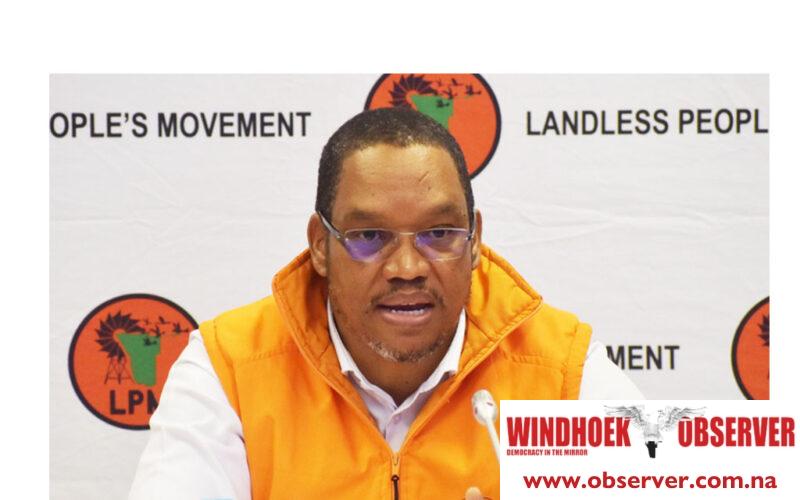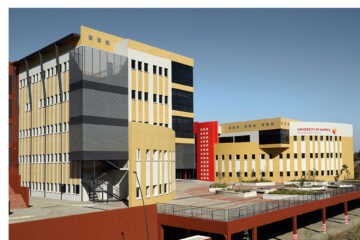Ester Mbathera
With just seven days to go before the National Assembly and Presidential elections, the leader of the Landless People’s Movement (LPM), Bernadus Swartbooi, has called on party members to participate in a four-day-long fasting and prayer session.
In a letter addressed to party members, Swartbooi announced that the prayer session would take place from 24 to 27 November.
“This prayer session is meant to pray for a peaceful election. Above all else, we should pray that the Divine Will of the Lord Jesus Christ will prevail in Namibia,” he said.
He said the party has never been shy to proclaim the biblical teachings of Jesus.
Swarbooi added that, as a party, they look up to the Lord’s mercy and grace to be their loyal and trusted divine helper at all times.
“We confess that this country, Namibia and the Namibian people belong to the Lord Jesus, and that is our collective conviction, as a Christian society,” he said.
The LPM was founded in 2016, with its origins rooted in addressing historical land dispossession and advocating for land reform.
It was initially a pressure group before formally becoming a political party in 2018 under the leadership of Bernadus Swartbooi, a former Swapo deputy minister of land reform.
Currently, the LPM holds four seats in the National Assembly and is known for its focus on social justice and anti-corruption.
Bishop Lukas Katenda of the Reformed Evangelical Anglican Church of Namibia explains the importance of maintaining a formal separation between religion and the state in a democratic, secular society.
“In a democratic, secular state, I believe in formal separation between religion, especially Church & State. In other words, religious principles cannot directly be the basis of public legislation, nor can secular laws be the basis for religious regulations. However, individual religious people out of their personal religious conviction can participate in politics,” he said.
He acknowledges that prayer and fasting are acceptable practices for Christians, including those engaged in politics.
However, he stresses that prayer must be accompanied by faith in God.
“Prayer cannot just be used as a magic power to get us where we want yet, without faith, to maintain what prayer has given. This means there is nothing wrong with prayers and fasting for as long as there is faith in one true God. Failure to acknowledge God through faith and then prayers comes to nothing in the end,” said Katenda.
While ordinary believers may engage in politics, Katenda warns of the risks, including potential compromises and complicity in unethical political behaviours.
“Why? Because secular politics is very shrewd and clouded in hidden agendas in some cases, one may end up being complicit in illicit political behaviour, therefore tainting or abandoning his/her faith altogether. For religious leaders, it is advisable (not a command) to adopt a neutral or impartial stance for the sake of unity,” he said.




